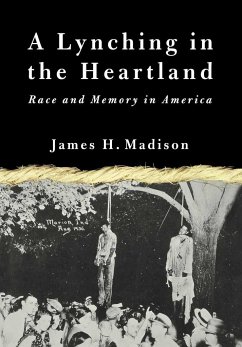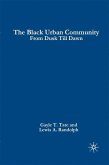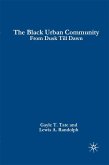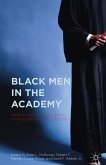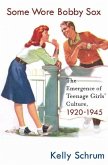On a hot summer night in 1930, three black teenagers accused of murdering a young white man and raping his girlfriend waited for justice in an Indiana jail. A mob dragged them from the jail and lynched two of them. No one in Marion, Indiana was ever punished for the murders. In this gripping account, James H. Madison refutes the popular perception that lynching was confined to the South, and clarifies 20th century America's painful encounters with race, justice, and memory.
Hinweis: Dieser Artikel kann nur an eine deutsche Lieferadresse ausgeliefert werden.
Hinweis: Dieser Artikel kann nur an eine deutsche Lieferadresse ausgeliefert werden.
"As passionate as it is disturbing, Madison's book is a dire reminder of the horrors the American heartland held for the dispossessed." - Publishers Weekly
"Conveyed in a simple, straightforward fashion, Madison's story acquires its own persuasive eloquence." - Washington Post Book World
"A piercing, provocative account of a famous lynching that will forever alter the way you see race, memory, and justice in America." - Essence Magazine
"Conveyed in a simple, straigtforward fashion, Madison's story acquires its own persuasive eloquence." - International Herald Tribune
"Through creative and meticulous research, this books reveals the complex roots and lasting significance of what happened..." - American Historical Review
"Conveyed in a simple, straightforward fashion, Madison's story acquires its own persuasive eloquence." - Washington Post Book World
"A piercing, provocative account of a famous lynching that will forever alter the way you see race, memory, and justice in America." - Essence Magazine
"Conveyed in a simple, straigtforward fashion, Madison's story acquires its own persuasive eloquence." - International Herald Tribune
"Through creative and meticulous research, this books reveals the complex roots and lasting significance of what happened..." - American Historical Review

